How to Increase Student Enrollment for 2020-2021
Top tips for higher education student acquisition
Time to Read: 30 min | Last Updated: June 2020
Julius Website | Julius Blog
INTRODUCTION
For years higher education institutions have faced an ever-changing market landscape fueled by technology, competition and changes in prospective students’ preferences. But no force or trend has come close to matching the speed and dimension of what we are facing right now with the COVID-19 crisis.
According to the American Council on Education, on-campus college enrollment will fall by 15% in the fall semester, costing institutions about $23 billion in foregone revenue. It is improbable that online options will make up for this loss, and uncertain if things will ever go back to “normal.”
On the other hand, the ongoing digitalization and automation of work will only accelerate with the pandemic, increasing even faster the need for high-skill jobs. In that sense, Higher Education will be even more important than before. Educational models need to change. People will need more access to higher education and vocational training programs, even if it is under a more online, socially-distant model.
Therefore, even though things will be harder in the next few months, we need to increase our efforts to capture the attention of our prospective students and find innovative ways to minimize the impact of the situation on our institutions’ enrollments.
We need to keep in mind that right now prospective students are confused, and as a result are postponing decisions, and in some cases changing their selection criteria. Therefore, selling cycles are being disrupted and institutions are being forced to reframe their value propositions and their sales and marketing techniques.
In this scenario, digital marketing and sales strategies play a larger-than-ever role. People are at home, spending more time researching online. Campus tours, student fairs, and other traditional selling tools are not available right now, but there are still many ways to connect with our target students.
Large universities with high digital marketing budgets might be well prepared for this. Their websites and other digital assets are (in most cases) fine-tuned, their sales teams are well-staffed, trained, and equipped, and they have the best and most expensive technology in place.
But small and medium higher education institutions, with more limited resources, might have been caught of guard. Now, more than ever, they need to double down on their digital strategy, but with the same (or fewer) resources than before.
In the paragraphs below we will go over the most important strategic and tactic issues that need to be covered to achieve high-performance in digital marketing enrollments initiatives at this time. It is based on my (and my team’s) more than ten years of experience helping 30+ universities internationally achieve and exceed enrollment goals, as well as an exhaustive investigation on what is happening right now, what is working, and what isn’t. |
DIGITAL ADVERTISING

Having enough prospective students is still a key factor in achieving successful enrollment numbers for any higher education institution. SEO, social, and other channels are important, but in most cases are not sufficient to fuel funnels enough to achieve the desired results, especially now that some channels are seeing a decrease in lead volume.
That's why paid advertising is more critical than ever, but during the coronavirus pandemic it comes with new challenges. We might need more prospective students, but in many cases there are lower budgets than before. So we need to achieve more from paid media campaigns, but with more restricted resources.
That's why we need to make sure we are getting the best out of the key digital lead sources, correctly managing each platform and campaign, and correctly allocating the budget.
MORE GRANULAR BUDGET OPTIMIZATIONS

Digital advertising costs have experienced, in general terms, a significant reduction during the last weeks. This is by itself good news. But at the same time closing rates in some universities have suffered.
Correct digital advertising budget allocation and optimization has always been critical, but now it is particularly important due to all the changes we are seeing in costs, closing rates, changes in behaviors and in audiences.
SEARCH ENGINE MARKETING

Search engine behaviors have shifted significantly. Search Engine campaigns need to be restructured and reoptimized to be able to maintain the same (or better) performance than before. Maybe before we didn’t need to professionally fine-tune our campaigns much, we could just let them run with low maintenance, even automatically. But now, we need professional help to evolve campaigns continuously and get the best possible performance out of them.
FACEBOOK & INSTAGRAM

Prospective students are spending more time on social media than before and many advertisers have scaled down their advertising budgets. This has led to reduced costs. But, once again, audiences have changed.
It is very important to measure the performance of each individual to which we are advertising daily, to rapidly detect changes in consumer behavior and to make sure that we are allocating our budget in the best possible way.
FIRST-PARTY DATA

Leveraging data to achieve great results has been a well known go-to technique in digital advertising for higher education institutions. We need to be careful, though. As consumer behaviors change and audiences shift, we need to rapidly adapt our first party data audiences and tactics.
Custom audiences and lookalike audiences are critical, but are only the beginning
EFFECTIVE COPYWRITING:

ADAPTING TO OUR CUSTOMERS’ CURRENT MINDSET
Our copywriting needs to change. We can’t use the same messages that we were using before. Of course our value proposition and products need to evolve also, but if we can’t connect with our prospect students, it won’t matter.
Some questions we need to ask ourselves as we work on our new messages are the following:
- What are our target students worried about?
- What may stop them from choosing us or from choosing anyone altogether?
- How has their journey changed?
- Which are their priorities right now?
Throughout our marketing communications, including paid ads, landing pages, PDFs, e-mails, etc, we need to make sure our communication is updated regularly and is relevant in today's context.
FIRST CLASS SALES EXPERIENCE

What happens after a prospective student fills out a form? How fast do they receive a phone call from a sales representative? How well do we follow up throughout the process?
All of these factors have always been very important, but now have become critical. We can’t afford to have a bad sales experience for our prospective students.
CALL BACK FAST -- VERY FAST
According to an article published in the Harvard Business Review, when making a significant decision, the majority of people still want to talk to a qualified human. While humans speak 125-175 words per minute and can listen at a rate of up to 450 words per minute, the average types 38-40 words per minute, and that’s on a full-fledged keyboard, not a phone.
Another HBR study also found that the life of online sales leads is very short. A study conducted with 1.25 million leads found that leads that are not called back within five minutes experience 90% lower contact rates, and leads called within an hour are 7x more likely to be qualified. Contacting your leads faster is key to reaching your enrollment goals.
Even though this phenomenon is well known by many sales leaders, only 4.7% of U.S.-based companies achieve this performance. This is due to the fact that the execution isn’t easy. To achieve a fast callback operation, the correct technologies need to be in place, systems need to be integrated through KPIs and enough agents should be available to handle peak times correctly.
SALES REPS PROFILE AND TRAINING

Sales reps need to be up to the task. Selling higher education is not like selling mobile phones. Prospective students (in some cases with the help of their parents) are making one of the most important decisions of their life. That's why who is selling is as important as what they're selling.
Even when budgets are high, its hard to have enough sales people, with the correct incentives, enough training, and with a high enough professional profile.
THE IMPORTANCE OF CONTACT CENTER PERSISTENCE
The same HBR study reports that the chance of making contact increases to 90% after 6 attempts. Yet, many sales teams, on average, try two times only, and 30% of leads are never contacted at all.
With the right amount of resources and processes, it is possible to increase the account of effective contacts by at least 70%.
A DIFERENT APPROACH TO ACHIEVE THIS: THE INTERNATIONAL CONTACT CENTER

To achieve a best-in-class contact center operation, we need software (licenses, implementation, integration, and support), sales agents -- many more than most higher education sales teams have -- and these agents need to be highly motivated and have a high enough profile to sell what they are selling. If you want to sell a college degree or a Master's degree, you need someone with the academic and cultural background to be up to the task.
All this is very expensive when paying US wages and IT services.
An alternative is to implement a professional contact center based in another country, for example in Monterrey, Mexico. Monterrey is on CST time and has a large number of English-speaking professionals thanks to its high education levels and proximity to the U.S. It also has a high-performance culture that makes it very easy to work with U.S. counterparts.
That's why companies such as The Home Depot, Grainger, Johnson Controls, Lowes and many others have established their Latin American Headquarters in Monterrey.
At JULIUS we have run higher education contact center sales teams, selling to U.S.- based students (and students from other parts of the world), with higher closing ratios than many U.S.-based contact centers and significantly lower costs.
INBOUND MARKETING

When searching to have a world class marketing and sales process, it is unthinkable to proceed without a professional inbound marketing strategy and execution.
WHAT IS INBOUND MARKETING?
Inbound Marketing is the use of content marketing and technology to give each prospective student everything they need in each stage of the admissions process. By providing personalized content & touchpoints throughout the process, Inbound Marketing may become a very cost-effective way to increase the overall performance of our enrollment operations.
BUILDING TRUST AND OFFERING VALUE
The approach of Inbound Marketing shouldn’t be too sales-oriented or aggressive. In the end, it is the sales-rep’s responsibility to close the leads. Inbound Marketing should run on a parallel road, complementing what sales reps are doing by providing high quality content.
The content should achieve several objectives, including:- Differentiating our unique value proposition from that of the competition
- Making sure our main attributes -- those that make our higher education institution special -- are very clear to the prospective student
- Creating trust and build credibility
- Giving the students tools to make their decision
BEFORE AND AFTER GENERATING THE LEAD

Inbound Marketing, and in particular its different components, are very helpful in generating leads and also closing more leads.
Thanks to content generation, when done correctly, we can generate organic tra ffic to our websites and convert leads from that tra ffic. Also, good content fuels high quality and effective social media posts, which can boost our social channels’ lead generation efficiency. Finally, good content may increase the performance of paid media ads, by giving paid traffic other ways of converting, or by using content to run paid media campaigns (in which accessing content is the call to action, and the goal is to first generate contacts, and later on convert those contacts to leads).
YOUR WEBSITE - YOUR MOST IMPORTANT DIGITAL ASSET
Inbound Marketing, and in particular its di erent components, are very helpful in generating leads and also closing more leads.
Thanks to content generation, when done correctly, we can generate organic traffi c to our websites and convert leads from that traffi c. Also, good content fuels high quality and effective social media posts, which can boost our social channels’ lead generation e fficiency. Finally, good content may increase the performance of paid media ads, by giving paid tra ffic other ways of converting, or by using content to run paid media campaigns (in which accessing content is the call to action, and the goal is to first generate contacts, and later on convert those contacts to leads).
DESIGN: UX & CREDIBILITY

Having a well-designed website is crucial to ensuring that prospective students see your higher education institution as a respectable organization in which they should trust their professional future. At the same time, people expect seamless experiences when navigating sites, so taking care of things such as usability, mobile responsiveness and time to load are musts.
SITE ARCHITECTURE

Your website should have all the information a prospective student may need throughout their admission process organized in a clear manner. Even if they never read from beginning to end everything in our website, we need to make sure that if they have an urgent question and can’t (or don’t want to) go through one of your sales reps, through one of your sales reps, that they can find everything they need.

SCHEDULE A CALL TODAY
To fast-track the implementation of these strategies for your college or university, schedule a call with me so we can talk about how we can help you apply this tactics to deliver results.
Find a time to meet Jorge Ayala, Founder & Managing Director - Julius North America

